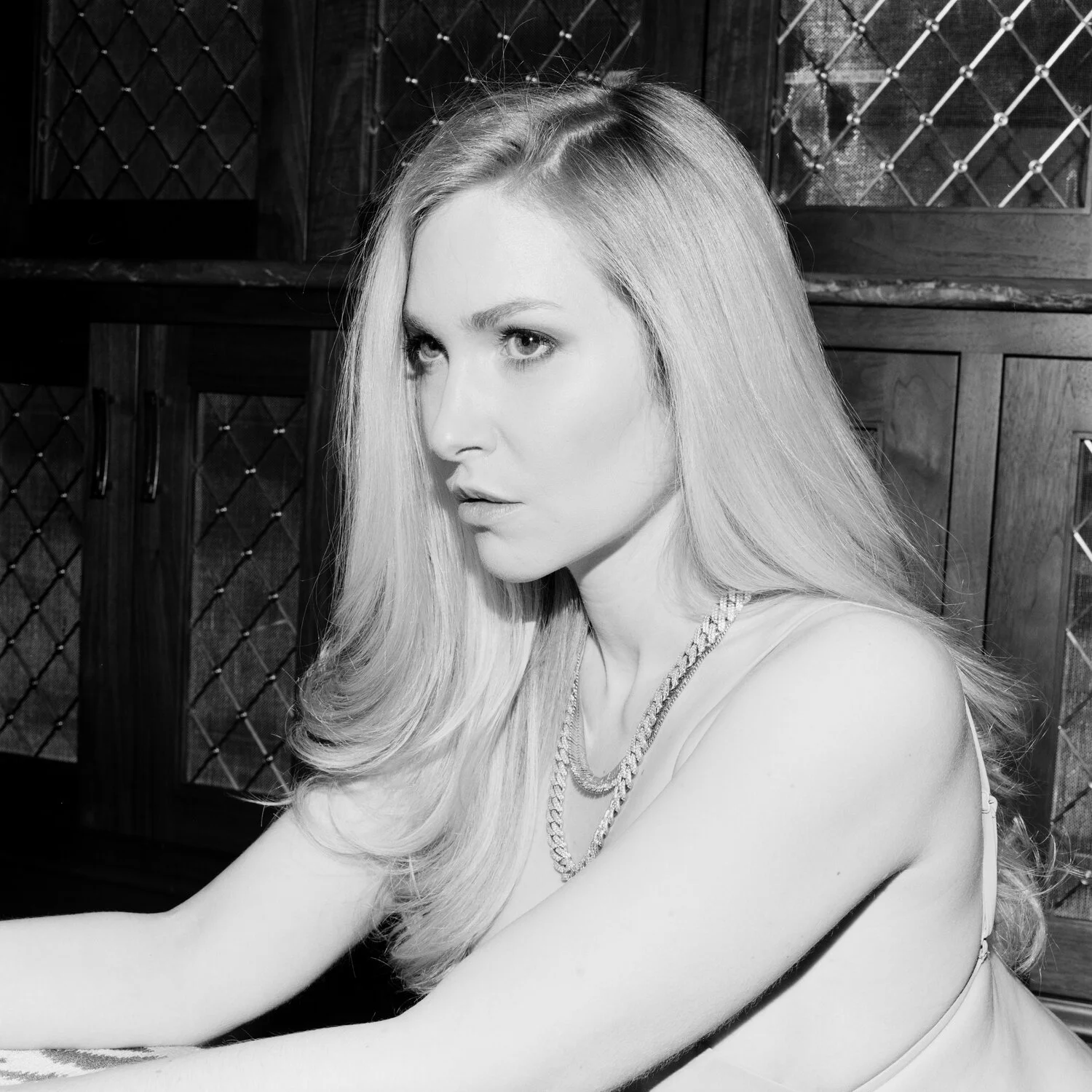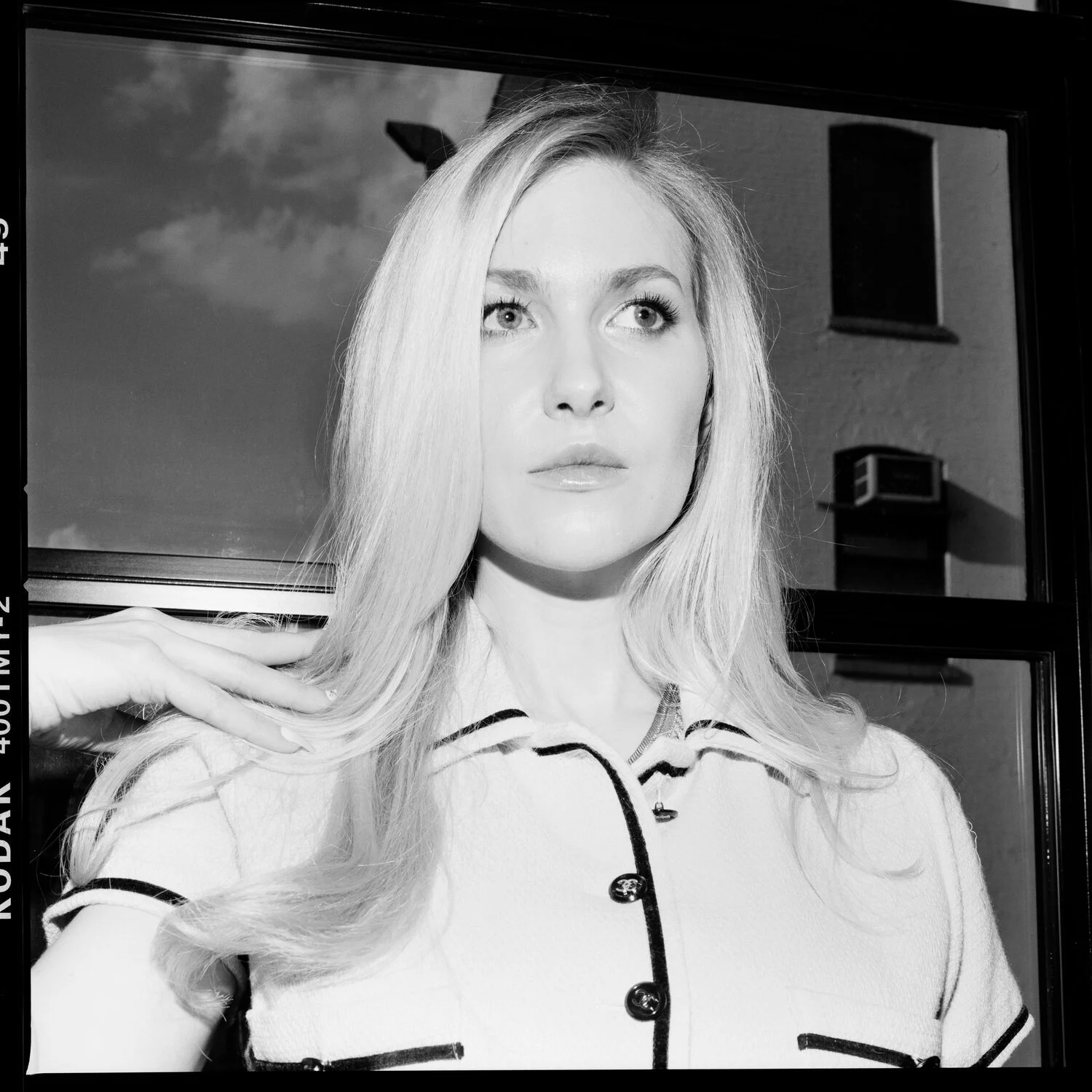Allie Rowbottom on Social Media, Plastic Surgery and Being Objectified
Make it stand out
It’s difficult to write about social media, to write about the ways it shapes and will continue to shape the way we think and act. It is most often documented as purely superficial, a necessary evil. But how do you write about a platform that is experienced differently by each of its users? Editorial teams and writers rooms are all trying to capture this reckoning, a moment in time that at the very least feels transformative. Very few writers do it well, even less bring nuance to the subject the way Allie Rowbottom does in her sophomore novel- AESTHETICA.
As a writer she is acutely aware of the worlds she writes about, striking a difficult balance between aspirational and bleak. Her debut novel, a memoir, follows the lives of three generations of women in her family-who are incidentally the heirs of the Jell-O fortune, and explores repressed trauma and mental illness using the cultural upheaval of America in the mid to late 20th century as a backdrop.
In conversation with our editorial assistant, Halima Jibril, Allie Rowbottom shares her thoughts on the commodification of our bodies, the collective loss of girlhood and how she uses writing as a vehicle to process grief.
___STEADY_PAYWALL___
In your author’s note, you wrote about “a deep longing to return to a feminine sphere I’m not sure exists beyond girlhood.” This really stuck with me as someone who kind of just left girlhood. We’ve seen this theme addressed recently in Greta Gerwig’s Little Women (2019) adaptation, where we see the literal death of a girl and the death of the three sisters girlhoods. So it’s a highly prominent theme within art. Why do you think we mourn girlhood so much?
For many women, though certainly not all, girlhood represents a time before sexualization, objectification, and the inherent confusion, if not trauma, therein. It’s a freer time, less rules about how we present ourselves, how we appear. Part of that freedom comes from having relationships with other girls that aren’t encroached on by men, and the cultural expectation that women fight with each other to win men’s attention.
For me, girlhood ended early, so I think I may be particularly compelled to return. Even as an adolescent, I was trying to stop time and get back, primarily through anorexia, which literally delays puberty. Later, right after my mom died, actually, I got into aesthetics–Botox and injectables–trying to freeze my face, stay young, stay a girl. But lately I’m finding–through writing, through the inevitable process of aging itself, and through friendship–that rather than returning to girlhood, I can enter womanhood. It’s a rich place to be, and fertile.
___STEADY_PAYWALL___
You have a very optimistic view of social media in this novel, which I find so refreshing. People are becoming increasingly pessimistic about the power of social media; for example, Adam Curtis’s documentary Hypernormalisation argues that posting on Instagram or performing social justice activism on platforms like Instagram only increase of power of those who own the platforms, like Mark Zuckerberg. Why do you believe social media can challenge rather than perpetuate prevailing attitudes and systems of oppression? How do you stay hopeful about it?
I’m flattered you see my portrayal of social media as hopeful! I honestly think to categorize something as big as social media, as universally bad, is sort of an old, moralistic stance (though perhaps an easier one for readers/viewers to digest). Generally, it seems like literature is hesitant to engage the topic of social media from anything but a hyper droll or hyper commercial stance. Like, mommy blogger gone rogue type content. Or the inevitable stalking-an-influencer trope. But to me, it was important not to oversimplify or finger-wag in this novel, especially when it comes to image-based platforms and plastic surgery, two subjects that deserve nuance. I think any platform that amplifies voices that might otherwise go unheard can be a challenge to the status quo, just as I think plastic surgery chosen from an educated perspective, can be empowering to those who choose it, be they women or men or gender non-binary or beyond. That said, in the novel, most of the time our protagonist, Anna, spends on Instagram is time spent presenting her body as commodity, or readying her body for consumption just as most of her body modifications stem from someone else’s idea of what she should look like, who she should be. But there are alternate approaches to everything she experiments with as a girl. They include, essentially, choosing a path toward womanhood, and incorporating her past into her present and future, rather than becoming a different person.
Power and social influence is a central theme in this novel. Your protagonist Anna at the start of this book has fascinating beliefs about power. In Chapter 2, Anna plays with the idea that image alteration can actually be empowering. She argues that if women’s bodies are going to be consumed in our society, isn’t there a freedom in controlling how it is consumed. This is a very similar argument used by model and writer Emily Ratajkowski. On the Cut’s podcast after publishing her essay ‘Buying Myself Back: When does a model own her own image?’ Ratajkowski argues, “There’s sort of a wave of feminism that’s like, ‘Listen, we live in a patriarchy, the way to get powerful and get money is [to] commodify yourself, and, you know, learn to capitalize on your sex appeal and your image. And there’s some truth to that—I own a home, I live a life that I wouldn’t have lived had I gone to UCLA for art. But the truth is that, ultimately, there’s only so much control that you can have.” Why did you choose to explore this definition/ narrative of empowerment in AESTHETICA?
I think Emrata is articulating a very Gen Z attitude toward social media, sex work, survival in a patriarchy. It’s also very capitalist to be like, look, we’re not going to overhaul the system, we just need to manipulate it for our own purposes. And the system will always eventually shift to accommodate profit. The incredible popularity of image based social platforms like Instagram, and subscription-based image platforms like Only Fans, represent this ideology. Personally, I’ve spent most of my life interested in feminism, its various waves and incredible shortcomings. And this ‘post-wave’ moment is no exception. In fact, I think I’m particularly interested in it because I’ve experienced incredible privilege based on my image, but also incredible pain.
So there’s a part of me that’s like, these kids are onto something, we’re going to be objectified anyway, it’s going to be painful, why not control the process? Certainly, in writing @ANNAWRAY, I experimented with my social media accounts for that reason, posting thirst traps, talking about aesthetics, that sort of thing. And what I found is that there’s a still prevalent expectation that women be either sexy or smart, never both. Like, yes sell your content, post your thirst traps, but don’t try to be an intellectual too. It’s an ancient, bogus, dilemma, and though I’ve had weird experiences with men in the publishing world—guys who run lit mags that lurk in my IG stories, or slide into my DMs, but won’t respond to my perfectly solid work when I submit it, for example—I’ve bumped up against it from women too. I’ll never forget how, when my first book was in production, my agent and editor (both women) told me my author’s photo was too sexy and would preclude me from being taken seriously as a writer. For reference, I was wearing pants and a blouse buttoned all the way to the top button. I was intensely embarrassed and ashamed, changed the author photo, and still many people didn’t take me seriously. I thought, fuck this, I’m screwed either way. Which is how I wound up here, in a bikini.
AESTHETICA paints a recognisable portrait of the mother-daughter relationship. It made me think of a chapter from Audre Lorde’s Sister Outsider where Lorde describes mourning the loss of a Black mother. She writes there’s a ‘recognition and acceptance that we have come to expect only from our mommas’. It instantly reminded me of a section of the book where Anna’s period leaked on her bed, and her mother calmly said, “your body’s just doing its job,” this juxtaposed Anna’s boyfriend reaction to her leaking on his bed. But we also have moments where Anna’s mother is not in acceptance of her daughters’ actions. You capture this tug of war relationship all daughters have with their mothers so beautifully. The first person many young girls learn to love is their mother. Why was it important to you to show the complexity of this romance? I feel like people (myself included) are scared to explore this further because it brings up intense emotions.
I honestly think my willingness to go into the complexity of the mother daughter relationship, especially between adolescent girls and their moms, comes from the intense guilt I carry about my own behaviour when I was young and my mom was still alive. She was sick for my early childhood and again for most of my twenties. She passed away before I hit thirty and I never got the chance to make up for the difficult years of my adolescence, years I pushed her away, defined myself in opposition to her, all normal individuation stuff. But I yearn for the chance to counter all that with the positive depth and abiding love I know our relationship would have been capable of, had she lived longer. I’m sort of haunted by that. I think Anna ends the book coming to terms with similar feelings. And because her feelings so align with mine, I think they feel tortured and true. And tortured truth is the particular combination I aim for in my work.
Words: Halima Jibril | Images: Samantha Sutcliffe




